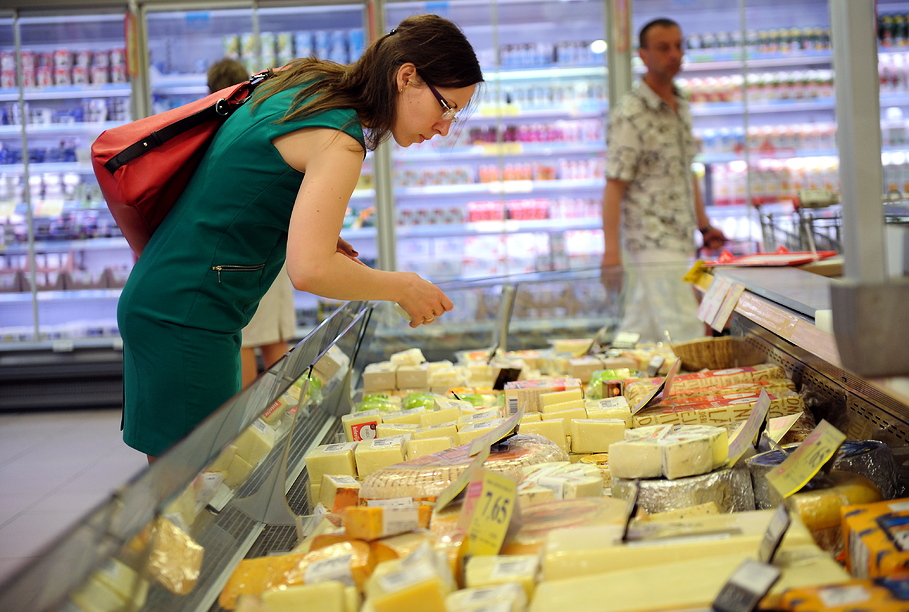Meanwhile retail chains have promised to provide whatever support competition regulations will allow to Latvia’s fresh dairy goods producers, and the Central Association of Dairy Farms is mulling the creation of a private brand to represent Latvian milk products.
On the one hand a sharp drop in prices is partly responsible for the increase in consumption, however shoppers have adopted a more patriotic attitude towards local products.
At the international food exposition Riga Food Thursday, Agriculture minister Jānis Dūklavs assembled the attending merchants and producers for a discussion on how best to prevent farmers and milk producers from suffering as a result of the embargo.
“I was pleased at the level of understanding shown between producers and distributors in seeking new ways to increase turnover of these goods in the stores,” said the minister.
On his part Dairy Farms Central Association board chairman Jānis Šolks told Panorāma that despite the confirmed surge in local consumer support, Latvia’s milk sector needs even more aid to ease the hit from Russia’s countervailing food-trade sanctions.
Association of Food Retailers executive director Noris Krūzītis explained that Latvian shoppers collectively are currently consuming between 70-80% of all fresh dairy product, including milk, produced nationally.
Nevertheless, small- and mid-size dairy farmers are near to facing despair over the precipitous downslide in prices that sees them receiving less and less per litre of milk (from €0.20-0.30/l). The break-even threshold for most of them is estimated to be around €0.27.
The prospect of farmers choosing to slaughter their dairy herds for meat in the face of the deepening price drops has Latvia’s delegation to next week’s Agriculture ministers’ council meeting in Brussels preparing to request additional support from the EU.





























